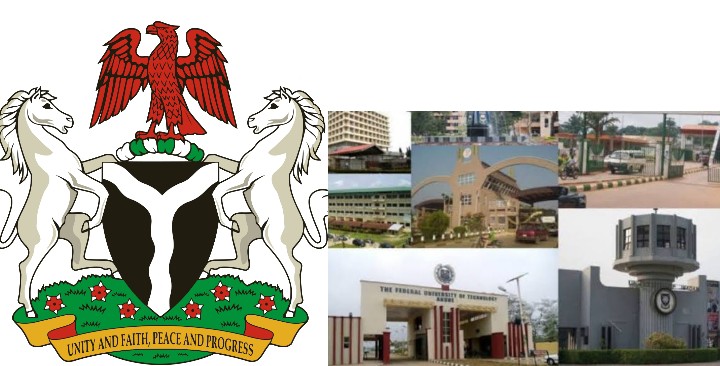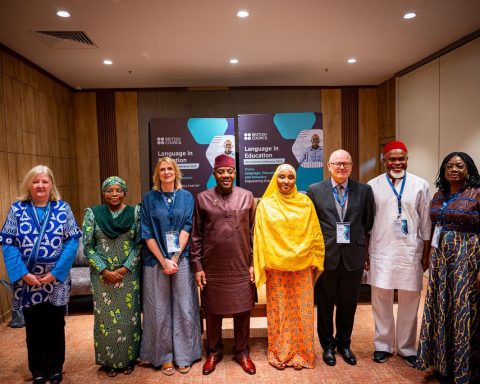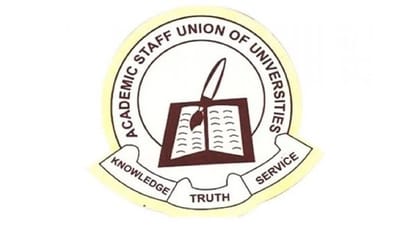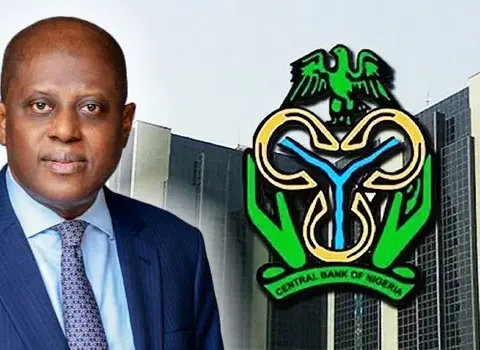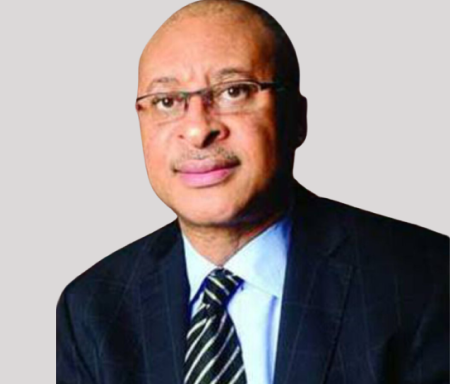It is quite disheartening to ruminate on the fact that at 62 years of Nigeria’s independence from colonial administration educational activities in her public universities are completely paralyzed for more than seven months due to strike by lecturers over the failure of the government to meet their demands.
Pained by the prolonged strike, the students were forced to orgnanise protests to register their displeasure over the ugly development. “No nation can develop without a genuine commitment to education.” “No Work, No Pay is a Fascist Talk. Pay Our Lecturers” and “If you have money for election nomination form, you can fund education.” These were some of the inscriptions on the placards, carried by Nigerian students as they protested the poor state of education in the country.
Incessant strikes edged on by poor funding and mismanagement has led to low quality of education in Nigeria’s higher institutions that are meant to be the citadel of learning and the Eifel tower of Nigeria’s growth and development and 62 years of independence, students are at home with no vaccine for the virus. Is there a need for celebration.
Join our WhatsApp ChannelAccording to the Times Higher Education Impact Rankings which looks at indicators that measure an institution’s performance across teaching, research, knowledge transfer and international outlook, the best ranking Nigerian university in the world is University of Ibadan which ranks 401. Other universities in Nigeria made the cut of top 1,000 including the University of Lagos which ranked 501 and Covenant University which ranked 601 in the world.
This ranking is far below the highest ranked university in Africa which is the University of Cape Town in South Africa which is 183rd.
READ ALSO: EDITORIAL: We Stand With ASUU, 200 Days After
It is a shame that top Universities in Nigeria are not ranked among the first 300 universities in the world, where then should the smile and cheers come from to celebrate 62 years of independence when the education system is still in infancy?
Incessant strikes and neglect from past and current administrations have no doubt contributed to the low turnout of quality education from the sector that contributes to the greatness of a nation.
The United Nation Education Scientific and Cultural Organisation (UNESCO) asked that 26 percent of budgetary allocation of any country should go to education, Nigeria has however, not achieved close to 14 percent.
A review of budgetary allocation of government both past and present, shows that Nigeria is not close to achieving the targeted goal for education growth and development.
A report released by an advocacy group, Invictus Africa, said that the education sector in Nigeria received its lowest budgetary allocation ever in 2022.
The report titled “Data and Analysis of the Federal Government of Nigeria’s Budgetary Allocation to Education between 2015 and 2022,” pegged the federal government’s budgetary allocation to education at 5.39 percent, which is N923.79 billion out of the total budget of N17.13 trillion, way below the bench mark by UNESCO.
The report also said that the 5 percent allocated to education is 50 percent lower than the 10 percent allocation in 2015.
Then why would there not be incessant strike by the Academic Staff Union of Universities (ASUU) who wants better pay of lecturers and enough funding of the university system to ensure standard education in the country.
The ongoing industrial action by ASUU has now become the second longest-running strike by the university lecturers since the inception of the 4th republic in 1999.
As of September 21st, it entered 220 days, making the strike second longest running strike behind the strike of 2020 which was 270 days.
This does not speak well for the universities that are the lofty height of development in Nigeria.
The lecturers are not being unjust striking for the sake of the having better university system.
The government rarely puts money into research whether in the health sector or other sectors.
The Minister of State, Petroleum Resources, Chief Timipre Sylva, once told journalist that the government only spends 0.2 percent of its GDP on research and this is far below what countries like India spend on research which is between 1.2 per cent and 2.5 percent.
Despite Nigeria’s claim of innovation and technological advancement in the world, infrastructural decay greets you once you step into most public universities.
There are schools where students have lectures under trees because no lecture hall is available to contain them.
Broken chairs, no tables, lack of proper and modern equipment to aid learning screams when you enter lecture halls. Many student hostels in public universities are nothing to write home about with damaged and swaying dilapidated buildings waiting for the right time to crush the unfortunate students that may be left in the hostels when they eventual go down with dangling electricity wires snaking around such buildings and overgrown bushes as well.
This is not a proper environment for learning. These grim realities are the reasons, they say graduates from Nigerian universities are half-baked with some finding it difficult to explain what they learnt in school or even how to apply the skills they got (if any vital one) from their stay in the university.
The malady of poor mismanagement and low pay, always make erudite lecturers to leave public universities to private ones that are ready to utilise their knowledge and give them deserved welfare, living some lecturers who only want sorting but barely step into classrooms till exam time when they come and impose on students, plagiarized textbooks often replete with errors, at exorbitant prices.
Students also do everything possible to go study outside the country and probably never return leading to brain drain in the country.
Apart from that, whenever schools resume, lectures are rushed to meet up with lost time, making students read only to pass exams but not gaining vital knowledge to be applied in practical situations. They therefore gain nothing but Grade Points for that particular year.
This menace smells doom for the Giant of Africa in the future if nothing concrete is done to remedy the crisis staring at our faces.
To save our education in Nigeria from total collapse, a lot needs to be done. The government needs to realize that education is the passport to a great future for the country.
Both the government and the private sector should put in more efforts and resources toward developing the education sector. The educational system of the country is suffering from decades of underfunding, and is therefore, necessary for the government to design a workable plan towards funding the education sector.
For the incessant strike in the country, whatever agreement reached by the government and ASUU should be implemented speedily.
The government should always carry the Union along when planning budget for education. He who wears the shoe, knows where it pinches, these lecturers are the experts who know what’s best for education. Living them in the dark will continue to spell danger for education.
Proper equipment and a constant update of school curriculum would boost quality education.
The world is constantly changing and so is education. Proper equipment and update of curriculum would put Nigeria at level where she can compete with those already on the global standards.
We should give up our religious footstep of theory and switch to practical method of teaching and learning. This is the only way we can build our own equipment harness our potentials in different areas including agriculture and other fields of science and technology.
Invest in quality teaching. You cannot give what you don’t have. Most of the teachers in the country are far below what teachers in other countries have under their belt. If you don’t train and retrain teachers to know how to handle classes properly and pay them well, we’ll continue to have low quality education in the country even though the curriculum is improved and more funding injected into the system.
As Nigeria is 62 and the education sector below power, as various indicators have shown, says nothing good of the country in that aspect.
There’s no doubt about it. Education is a powerful tool for change. In order to tackle the challenging issues that are a part of our modern society, we need educated, skilled leaders who are dedicated to critical thinking and creative problem-solving. You can only get that through a good and proper education system.
Let our leaders put that in mind as we as a nation clock 62 in pains and dry smiles.



